Prime rib can seem like a daunting dish to cook at home—it’s expensive and the expectations are always so high. But don’t talk yourself out of it—you’ll be pleasantly surprised by how quick, easy, and delicious this prime rib recipe is! With our easy-to-follow steps, you can make the perfect prime rib every time.
Serve yours with our Garlic Mashed Potatoes and our Best Green Beans Ever for a feast worthy of a steakhouse!
Why Our Recipe
- Make the perfect prime rib every time with our easy-to-follow steps that turn this daunting dish into something worthy of a steakhouse.
- Horseradish and garlic make for an irresistible crust with a ton of flavor and incredibly juicy meat.
- A creamy horseradish sauce is included for serving, just like you’d get at a restaurant.
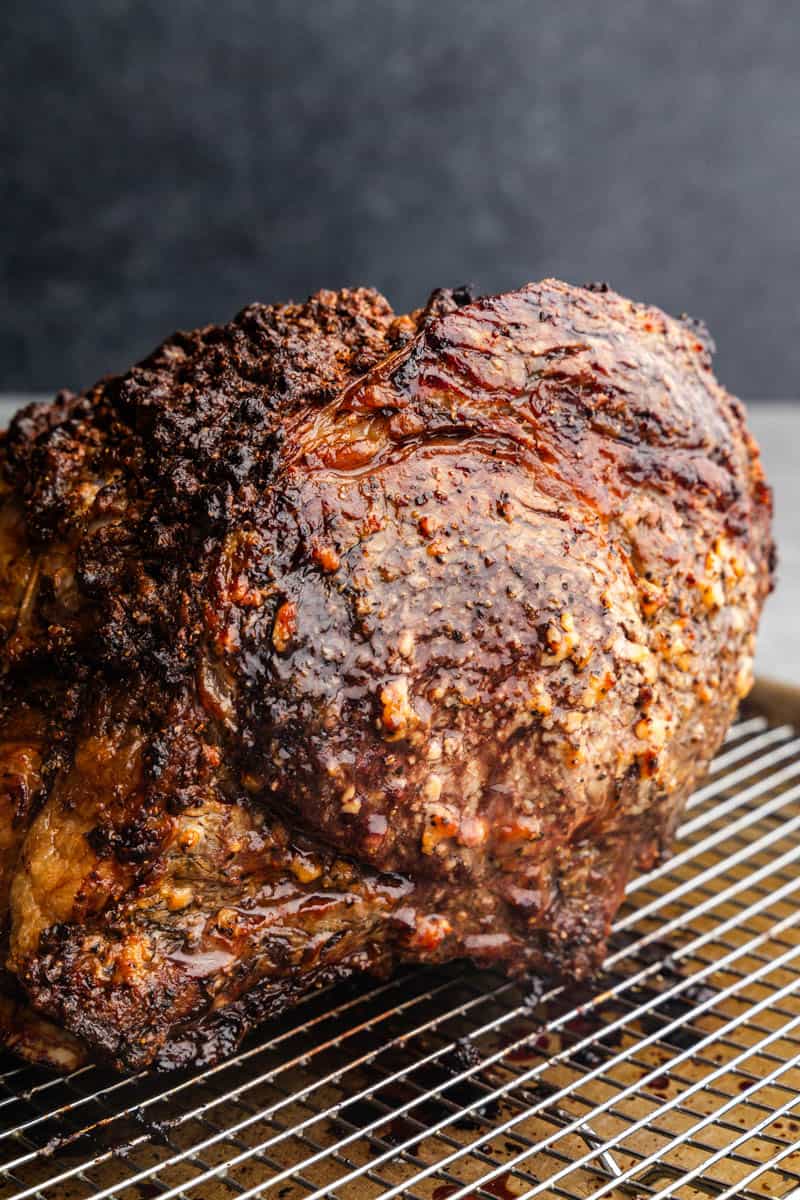
Prime rib is something that will never go out of style. This is something that we usually don’t eat unless it’s a holiday or some other special occasion, but it’s delicious enough that you’ll be looking for just about any excuse to make it! There is just nothing better than a tender, juicy prime rib.
Ingredient Notes
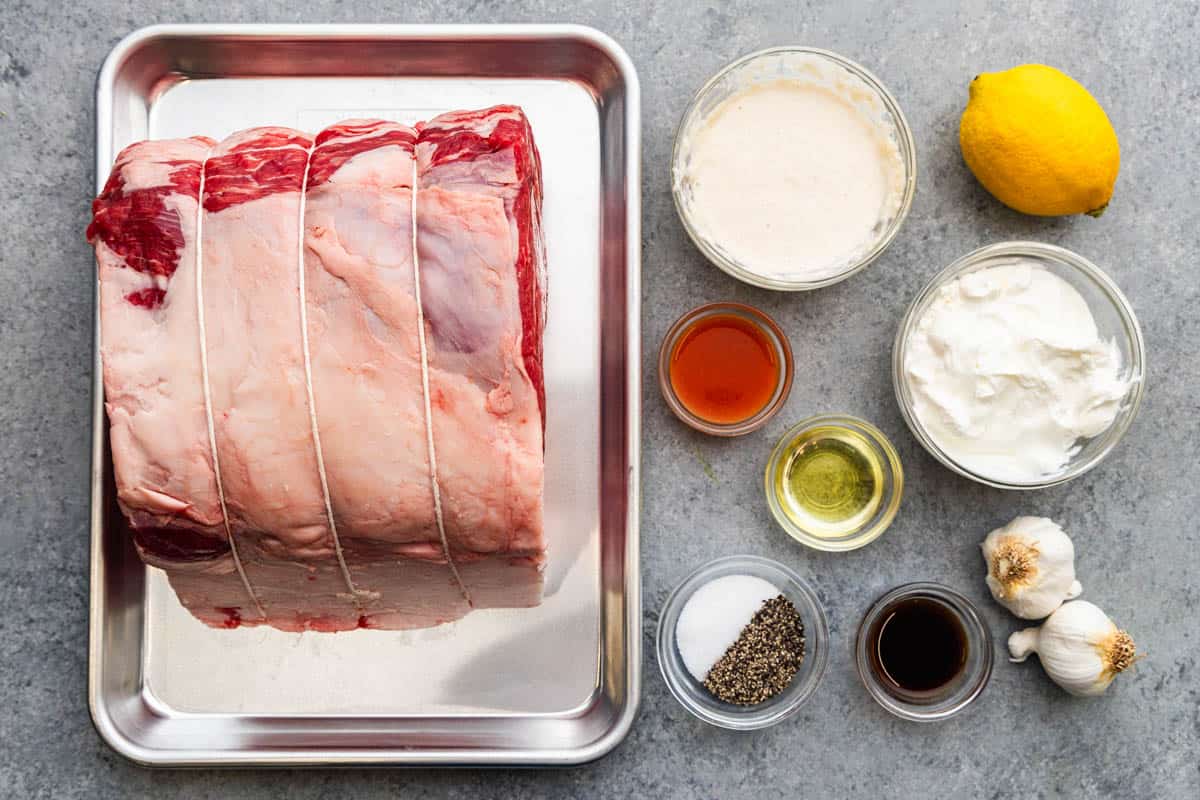
- Prime Rib Roast: Also known as a standing rib roast, this cut of beef comes from the rib area of the cow. It is known for being especially tender and rich. Look for a 4 to 5-pound roast, either bone-in or boneless, depending on your preference. Bone-in adds flavor and helps retain moisture, while boneless is easier to carve.
- Prepared Horseradish: Not everyone loves horseradish, but trust us on this one—it adds a deliciously tangy flavor to the meat that you will love. Ensure you’re using prepared horseradish, not a jarred creamy horseradish sauce. This can be found in the condiment section, near things like ketchup.
- Garlic: Freshly minced garlic is going to be your best option here with the best flavor. We strongly recommend mincing your own or using a garlic press. Jarred options are convenient, but they tend to have a more bitter flavor.
- Lemon Juice: This adds to the tanginess of the sauce.
- Tabasco Sauce: This is an optional ingredient. It doesn’t add heat, but it does add flavor.
- Worcestershire sauce: This is optional in our recipe, but we always love the extra savoriness that comes from adding Worcestershire sauce to any recipe!
Choosing Your Roast
When you’re choosing a prime rib roast, there are a few options to consider. The first thing is the grade of beef. You can get prime, choice, or select grades. Prime is the highest quality with the most marbling, which adds flavor and tenderness to the roast. Choice is the next highest quality and has a moderate amount of marbling. Select is the lowest quality, with the least amount of marbling. You can choose any of these options for your prime rib, depending on your taste preferences and budget.
You can also choose between a bone-in roast or a boneless one. A bone-in roast will still have the rib bones attached, and that will only add to the flavor and keep your roast moist while it cooks. A boneless roast will be easier to carve and serve. Similarly to choosing the grade of roast, both bone-in and boneless roasts will work well. Choose based on your preference and budget.
What Size to Purchase
Prime rib is always the star of any meal it’s part of, but it is also an expensive cut of meat. For a more conservative meal, plan on about 1/2 pound per person and you can add more side dishes to supplement the prime rib. If you’re okay with people eating a bit more than that, 3/4 to 1 pound per person should be plenty.
Keep in mind that if you’re purchasing a bone-in prime rib, you might need to buy slightly more to account for the weight of the bones. In that case, plan for about 1 pound per person for a more generous portion.
Roasting Pan
You can still make this dish without a roasting pan. You can just use a 9×13 pan or a cast iron pan instead. A wire rack can be placed in the 9×13 pan or cast iron for better airflow. Once the prime rib roast is done cooking, just remove it from the pan and move to a cutting board or serving platter to rest.
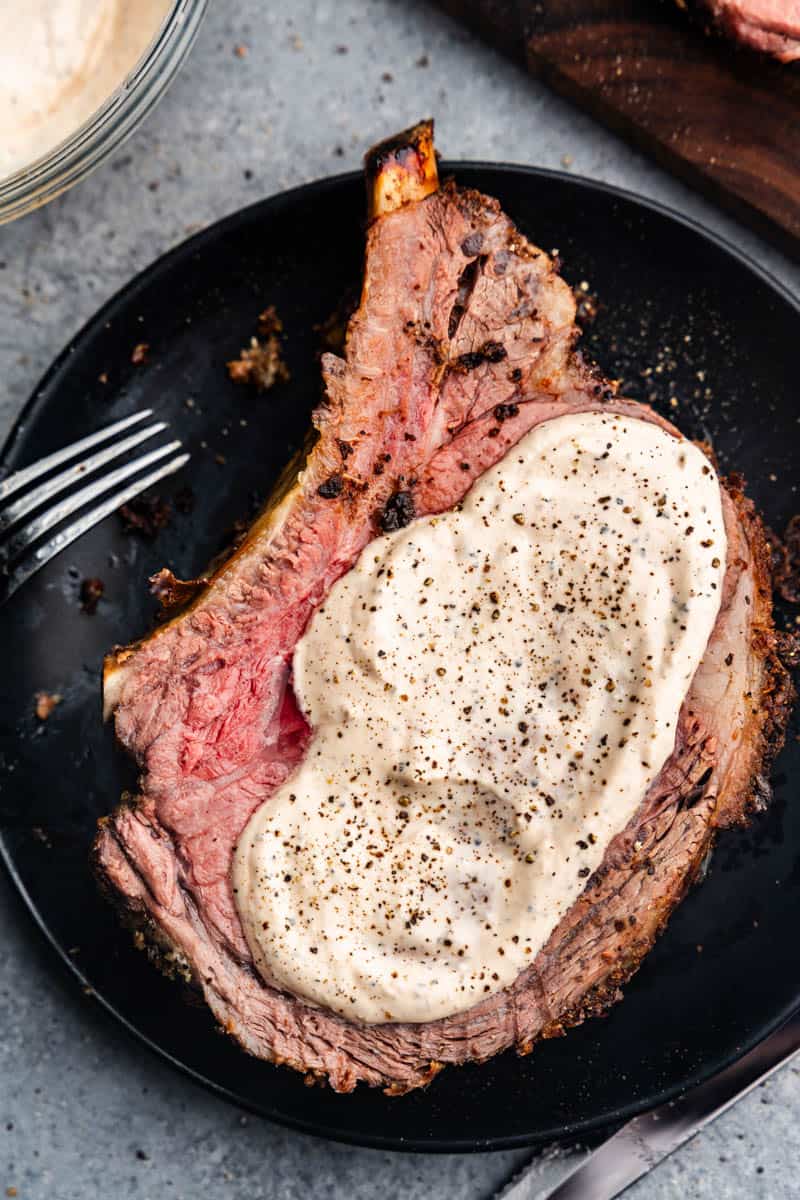
Meat Thermometers
Meat thermometers are super useful, and we highly recommend them for making prime rib. You don’t want to overcook an expensive cut of beef, and it can be so easy to do that without a meat thermometer. If you try to make this recipe without a thermometer, you’ll be making estimations based on time. The rule of thumb is 13 to 15 minutes of cooking time per pound of roast for a medium-rare prime rib. Be warned that cooking by minutes per pound is always an estimation since all ovens are different, so your results will vary.
Internal Cooking Temperature
Make sure you only cook prime rib to medium-rare. The outer ends will be more well done, and that level of doneness will decrease down to medium-rare at the center. Those center pieces will have a perfect, melt-in-the-mouth texture to them, but the outside parts are great for people who might not like a lot of red in their meat. There’s something for everyone in this roast!
Storage and Reheating Instructions
Prime rib is best served freshly roasted, but if you end up with leftovers, they will keep for a few days.
Refrigerate leftovers in an airtight container for 3 to 4 days.
Reheat portions in a skillet, placing the meat in it when the skillet is still cold and heat it slowly over a medium heat. For more moisture, heat it in melted butter. We recommend avoiding reheating the prime rib in a microwave.
More luxury beef recipes…
Watch the video below where Rachel will walk you through every step of this recipe. Sometimes it helps to have a visual, and we’ve always got you covered with our cooking show. You can find the complete collection of recipes on YouTube, our Facebook Page, or right here on our website with their corresponding recipes.

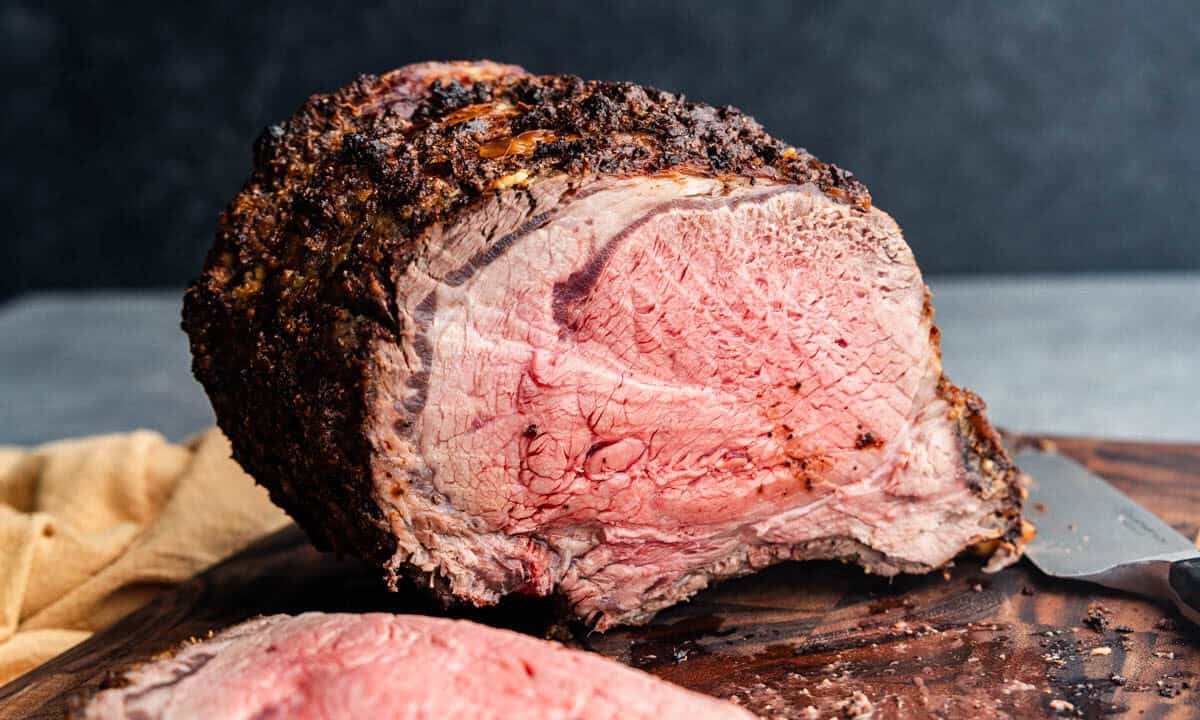
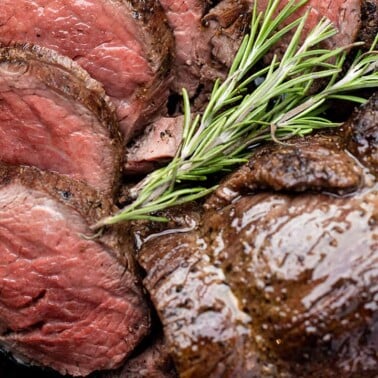
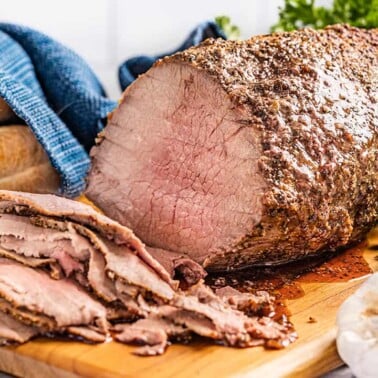
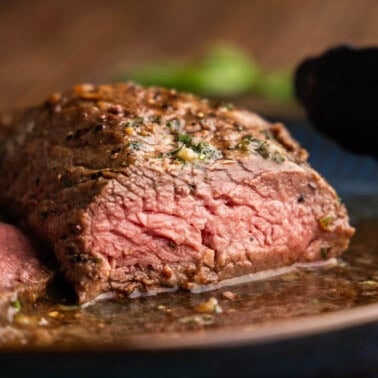
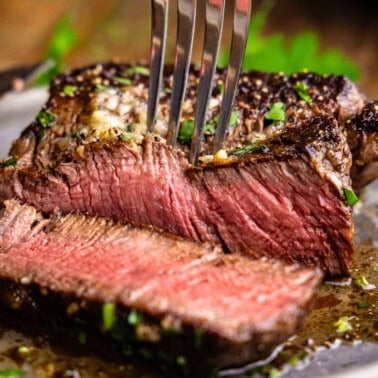
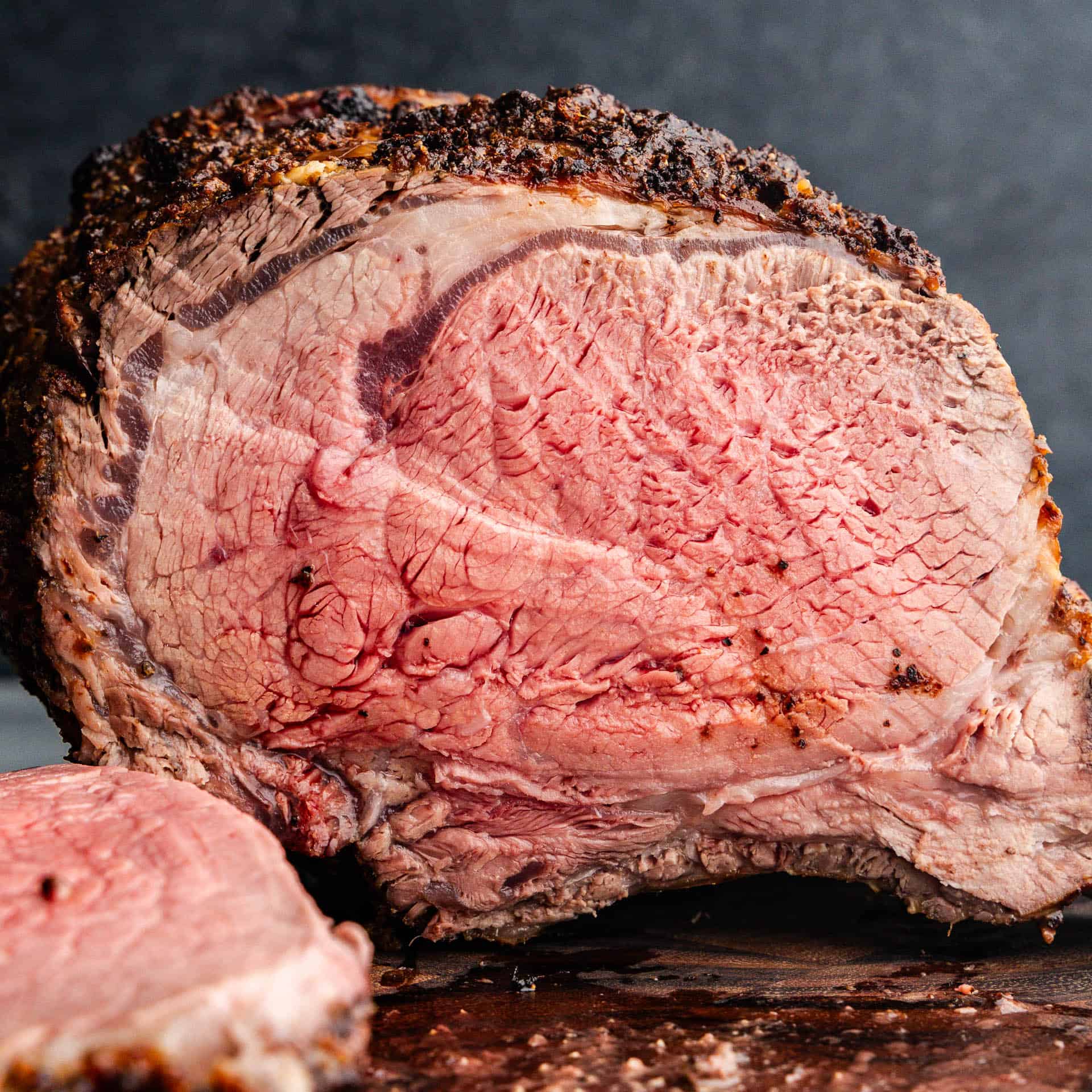
Does this get cook with a lid or foil?
Nope! No lid or foil required.